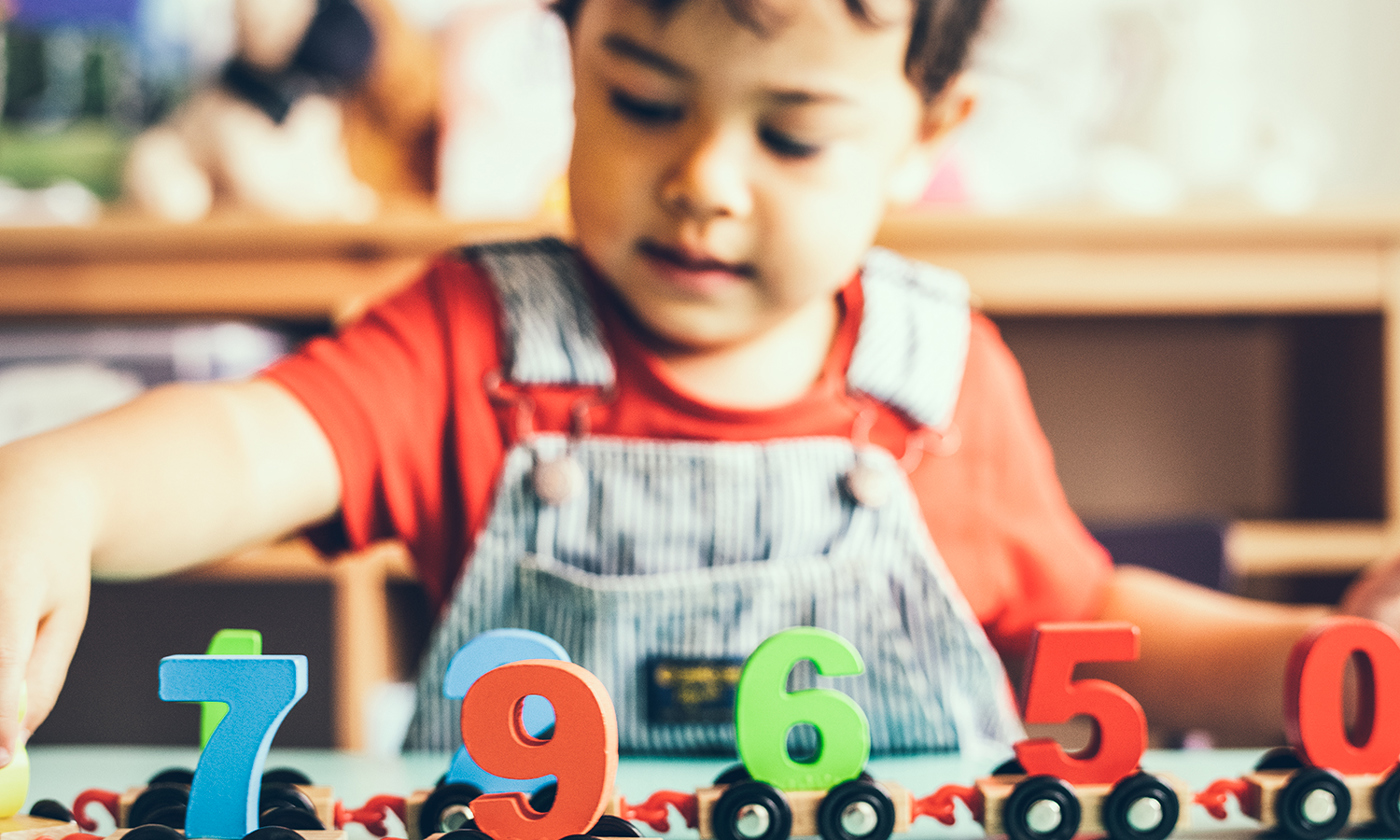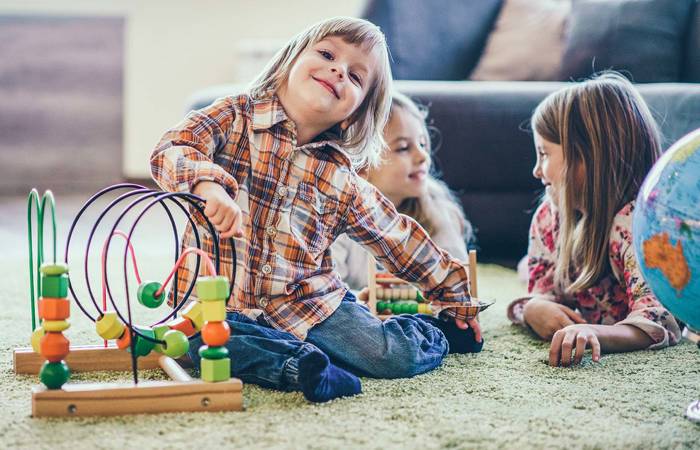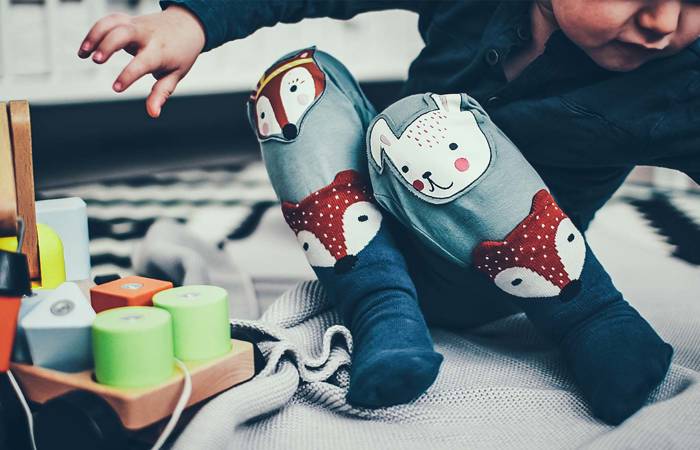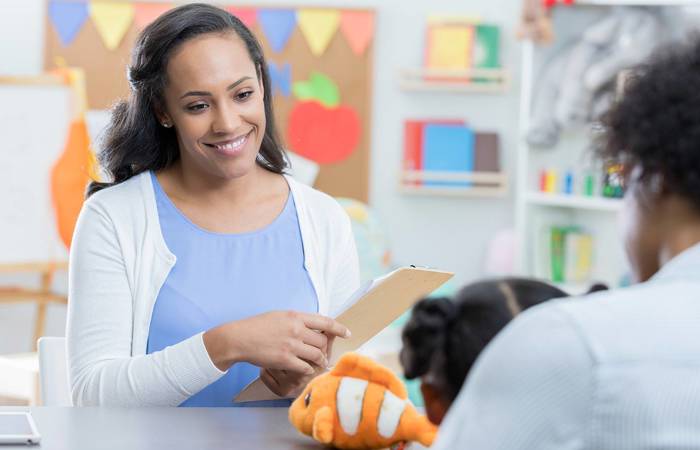Like what you see?
Sign up to receive more free parenting advice.
Thank you for subscribing to our newsletter!
Early Learning

Credit: iStock.com/Rawpixel
Most parents realise that play is an important part of a child’s life. But what many might not realise is that play improves literacy and numeracy, and it is what children see their parents doing that can influence their interests.
A study by Macquarie University revealed that watching their parents can impact the games children play.
The aim of the study - Following in our footsteps: how adult demonstrations of literacy and numeracy can influence children’s spontaneous play and improve learning outcomes – was to reverse the traditional thinking that the best way for children to learn is to link education to their existing interests.
Lead researcher and Lecturer at Macquarie University’s Department of Educational Studies, Dr Yeshe Colliver says it was already known that to be effective early learning must be centred around the child’s interests – for children to learn things, they have to be interested in them.
“Playing is a key way for children to begin learning, but it’s hard to see what benefit playing with Spiderman or Barbie can bring. Even more difficult is creating a link between a superhero and, say, mathematics,” Dr Colliver says.
“So rather than looking at how adults can ‘follow the child’s interests’ and link them to learning, we wanted to know ‘What if adults could change what children are interested in?’.”
The standout message from the interviews with parents and from what they got out of it was that it changed their beliefs about how much influence they have over what their child was interested in. It showed that parents can really influence what children become interested in if they start to show some of the building blocks of literacy and numeracy that they’re using in everyday life.Dr Yeshe Colliver
Stay up to date with the latest news and articles from First Five Years
Thank you for subscribing to our newsletter!
Children are interested in the world around them
The idea behind the study came from the notion that children want to learn the skills they see as important in society, in particular do children who observed problem-solving literacy and numeracy activities among adults value those skills and want to play and learn about them?
“We tapped into the fact that what children are interested in is a reflection of the world around them, but we didn’t know if altering what they are exposed to would shape what they are interested in,” Dr Colliver says.
The study exposed 17 four-year-olds to different adult demonstrations to see if they influenced what children were interested in playing with.
It was theorised that by demonstrating certain problem-solving activities to children over four weeks, value would be ascribed to these literacy or numeracy activities and children would play with them. In doing so, the children would learn literacy and numeracy skills.
The researchers exposed the children to demonstrations of literacy and numeracy and, while the children were playing, parents and educators did activities in the background, linked to literacy and numeracy.
In just four weeks, the children began to play more with literacy and numeracy concepts. The study’s results show that children exposed to numeracy demonstrations played more with numeracy concepts, and those exposed to literacy demonstrations improved on reading measures.
“The standout message from the interviews with parents and from what they got out of it was that it changed their beliefs about how much influence they have over what their child was interested in. It showed that parents can really influence what children become interested in if they start to show some of the building blocks of literacy and numeracy that they’re using in everyday life,” Dr Colliver says.
“The parents that went through the intervention came out saying ‘I didn’t realise I’d have that much influence,’ and ‘It wasn’t me telling them to do anything, it was me just doing things in the background and not forcing them to do anything’.”
Dr Colliver says play is a fascinating topic to study.
“Play happens naturally in the animal kingdom, with about 1/5th of an animal’s energy being spent on play. We still can’t quite pinpoint the benefits of play so obviously if all these animals have evolved to behave in a particular way, we’d presume it must have an important function. Play clearly has an important part to play in our learning and development but exactly what that is remains a mystery,” Dr Colliver says.
Key findings of the study include:
- Children could be missing out on key learning opportunities if they play games with no educational benefit or context.
- Parents can have a greater influence on the type of games children play.
- What adults do around children also impacts what they’re interested in.
Dr Colliver says educational play has become more important and that’s largely to do with the demands we have on children in society today, rather than a predisposed or biologically inherent kind of need.
“I wouldn’t say that educational play would necessarily be more important than non-directed play, but I think educational value can come both from child-initiated and from adult-initiated play.
“Play time doesn’t necessarily have to be all guided play for it to be reaching the same outcomes. But there is a divide in the literature where, child-initiated play, which often occurs with peers, does seem to be superior for building social and emotional skills.”
What Dr Colliver found fascinating is that the parents realised that by not forcing a particular kind of play, the children then became curious about what the parent was doing.
“And then, the children would play that particular activity in their early childhood centre; that was the big finding. We’ve also been completing analysis of longitudinal data of about 4,000 children that we’ve been tracking from birth,” Dr Colliver says.
“What we found was the children that engaged in more quiet play when they were two years old, ended up having greater self-control throughout their early years.
“And, while we haven’t had the time to track it the whole way through, we’ve found that until the age of seven those children are showing improved self-regulation. Self-control and self-regulation are very important skills for peer conflict and negotiation.”
What toys should parents buy?
When it comes to buying toys for children, Dr Colliver says educational toys, such as chalkboards, coloured blocks for patterning or tool sets, may be a good option if adults also use similar tools in everyday life.
“But making it meaningful to life is key. While an action figure may have limited value, so might ‘educational toys’ if parents force children to use them.”







